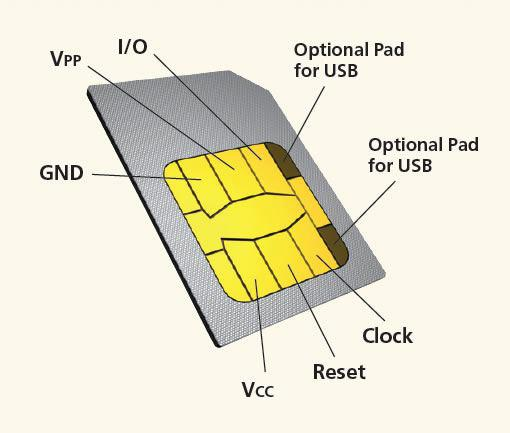Categories
- Subscriber Identification Module (SIM) Cards(0)
- 1
Description of Subscriber Identification Module (SIM) Card
SIM card, referred to Subscriber Identification Module card, is a type of smart card designed to safely hold an international mobile subscriber identity (IMSI) and its associated security key. These are essential for recognizing and verifying mobile phone users on their devices, like smartphones and mobile-enabled laptops. In addition to this, SIM cards can also retain contact information from an address book and can be secured with a PIN to prevent unauthorized access.

SIM card
How does a SIM card work?
A SIM card is equipped with two crucial identifiers: the IMSI (International Mobile Subscriber Identity) and the ICCID (Integrated Circuit Card Identifier). These identifiers serve to authenticate and recognize mobile users.
The core component of a SIM card is its microchip, which carries a unique identification number and user-specific data. The IMSI, a 64-bit number, is stored within this chip and plays a dual role in verifying the user's identity and safeguarding their information. During the initial connection of a device to a mobile network, the IMSI and an authentication key are transmitted to the service provider. This process ensures that the device is legitimately associated with the user. If the IMSI and authentication key correspond with the provider's records, access to the network is granted; otherwise, the device is denied network access.
The ICCID is an 18-to-22-digit number typically located on the SIM card's reverse side. It functions as the card's unique identifier and is non-replicable. This sequence of digits encodes information about the SIM card's industry, country, service provider, and individual identification number. Once a SIM card is purchased and activated, the ICCID informs mobile network operators which network to link the SIM card and its associated device to, facilitating connectivity.
Frequently Asked Questions
What information can be extracted from a SIM card?
SIM cards store a variety of information, including personal identification, geographical location, and telephone numbers, as well as authorization credentials for network access, individual security keys, contact directories, and saved text messages. These cards enable mobile users to access and utilize this data along with the functionalities they provide.
What happens if you take out your SIM card and put it in another phone?
By placing your SIM card into a different phone, you effectively migrate the stored information to this new device. The reason your phone number remains the same when switching phones with your SIM card is that the number is associated with the SIM card and the mobile network, not the phone itself.












